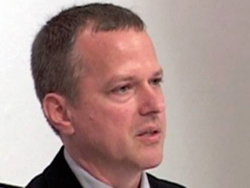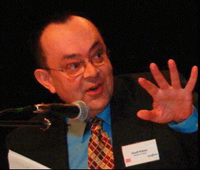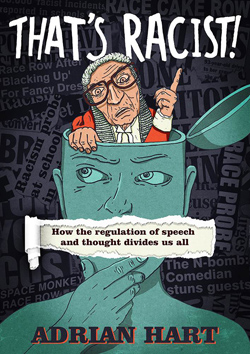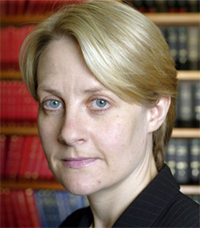Whoever wins the next election, museums and galleries will continue to be under threat. Is this simply explained by the political economics of austerity and the need for local councils to make financial savings? Or is there a profounder cultural reason that makes such cuts easy targets even against local opposition? Have people simply forgotten what museums are for? Museums, like universities celebrate and defend themselves because of their personal, social and economic ‘impact’. How convincing are such instrumental arguments? Can we make a better case for museums? Continue reading
Reclaiming freedom in education and society
On Tuesday 17 March at 7:00PM in Hallmark Hotel Derby, Midland Road, DE1 2SQ Derby, the East Midlands Salon is hosting a discussion entitled ‘Reclaiming freedom in education and society’
Liberal education and the progress of knowledge depend on tolerance of the widest possible diversity of ideas and expressions of those ideas. As Mill described in On Liberty, revolutions in ideas depend on tolerating even the most countercultural arguments, and personal growth depends on confronting even the most seemingly false ideas. Continue reading
The Future of Innovation
 On Tuesday 17 February at 7:00PM in Hallmark Hotel Derby, Midland Road, DE1 2SQ Derby, the East Midlands Salon is hosting a discussion entitled ‘The Future of Innovation’
On Tuesday 17 February at 7:00PM in Hallmark Hotel Derby, Midland Road, DE1 2SQ Derby, the East Midlands Salon is hosting a discussion entitled ‘The Future of Innovation’
In the UK, nuclear energy is being delayed, and prospects for fracking, high speed trains and a new airport are uncertain. There is euphoria about driverless cars, but snowstorms all too easily close roads and the radio masts for mobile networks. Meanwhile, fears of robots and Artificial Intelligence are growing.
The good news is that some new money has been made available for advanced materials, and for medical research. What can we look forward to, then, in innovation tomorrow?
Speaker: James Woudhuysen Continue reading
The Enlightenment: has the light gone out?
 On Tuesday 2o January at 7:00PM in Hallmark Hotel Derby, Midland Road, DE1 2SQ Derby, the East Midlands Salon is hosting a discussion entitled ‘The Enlightenment: has the light gone out?’
On Tuesday 2o January at 7:00PM in Hallmark Hotel Derby, Midland Road, DE1 2SQ Derby, the East Midlands Salon is hosting a discussion entitled ‘The Enlightenment: has the light gone out?’
Sapere aude! – ‘Dare to know!’ or ‘Have the courage to use your own reason!’ was what the philosopher Immanuel Kant chose as the motto of the Enlightenment. In his famous essay ‘What is Enlightenment?’ (1784) he wrote:
‘…enlightenment requires nothing but freedom–and the most innocent of all that may be called “freedom”: freedom to make public use of one’s reason in all matters. Now I hear the cry from all sides: “Do not argue!” The officer says: “Do not argue–drill!” The tax collector: “Do not argue–pay!” The pastor: “Do not argue–believe!” Only one ruler in the world says: “Argue as much as you please, but obey!” We find restrictions on freedom everywhere. But which restriction is harmful to enlightenment? Which restriction is innocent, and which advances enlightenment? I reply: the public use of one’s reason must be free at all times, and this alone can bring enlightenment to mankind’. Continue reading
What’s Racist?
On Thursday 2o November at 7:00PM in Hallmark Hotel Derby, Midland Road, DE1 2SQ Derby, the East Midlands Salon hosted a discussion entitled ‘What’s Racist?’
Our speaker will be Adrian Hart, film maker and author of The Myth of Racist Kids, who will introduce the themes of his controversial new book That’s Racist! Responding to his introduction will be Ruth Mieschbuehler (University of Derby) and Vanessa Pupavac (University of Nottingham).
What is a university for?
In October 2014, the East Midlands Salon hosted a discussion entitled ‘What is a university for?’
Universities are distinct institutions that engage in the pursuit of knowledge and understanding without fear or favour. Historically universities have been seen as custodians and conduits for the best of intellectual thinking within and on behalf of society. This consensus view of what universities are for has been challenged by government and funding bodies concerned with the ‘impact’ of research and its benefits to wider society and the economy.
At the same time we have seen a complementary emphasis on the student as ‘consumer’ and a growing concern with ‘student experience’ and ‘student satisfaction’. Are we seeing the end of the university as a public good and its replacement by commercial forces or a shift in focus for the greater benefit of everyone in society?
Do we need a victims’ law?
In September 2014, the East Midlands Salon hosted a discussion entitled ‘Do we need a victims’ law?’
In recent years victims have played an increasing role in the justice system, for example the rise of victim statements, and all major parties have pledged to increase their involvement further after the next election. Labour’s proposals for a new ‘victims’ law’ which will put victims at the centre of the criminal justice system is seen by many campaigners as a much needed reform that will give confidence in the legal process to people suffering from violence and abuse. As the Victims’ Taskforce director Sir Keir Starmer QC, says ‘For many victims the adversarial journey through our courtrooms is such an ordeal that most vow never to repeat it’ and we need to do away with the ‘Criminal Justice System’ and replace it with a criminal justice service fit for victims. Continue reading
Is suicide a sin?
 In June 2014 at The Brunswick Inn, Derby there was a discussion of suicide and assisted suicide, introduced by Kevin Yuill author, ‘Assisted Suicide: the liberal, humanist case against liberalization’.
In June 2014 at The Brunswick Inn, Derby there was a discussion of suicide and assisted suicide, introduced by Kevin Yuill author, ‘Assisted Suicide: the liberal, humanist case against liberalization’.
Kevin says “For some, suicide is the irrational act of an unsound mind requiring medical intervention, but for others it can be a moral decision made by rational individuals, troubled or otherwise. Either way, does emphasising the role of external pressures (such as recession-fuelled hardship or bullying and harassment) risk undermining the individual’s responsibility for the act itself?
‘Pob’ v ‘Blob’: Who is winning the hearts and minds of teachers?
The May 2014 Salon was a discussion of Education Secretary Michael Gove’s war against ‘The Blob’ – his name for left wing teachers and teacher trainers.
The politics of sport
In April 2014, the East Midlands Salon hosted a discussion entitled ‘The politics of sport’.
 This Salon discussion was introduced by Geoff Kidder – the Membership and Events Director at the Institute of Ideas and their resident expert on all matters sporting and will ask ‘Should we kick politics out of sport?
This Salon discussion was introduced by Geoff Kidder – the Membership and Events Director at the Institute of Ideas and their resident expert on all matters sporting and will ask ‘Should we kick politics out of sport?
By way of introduction Geoff says: Continue reading

